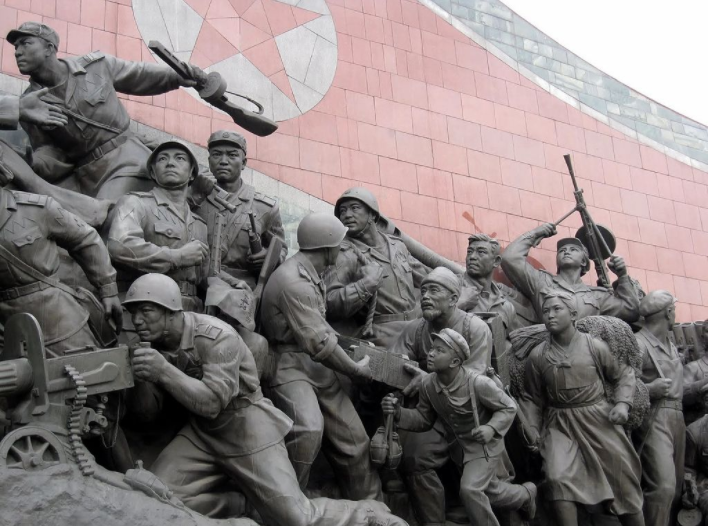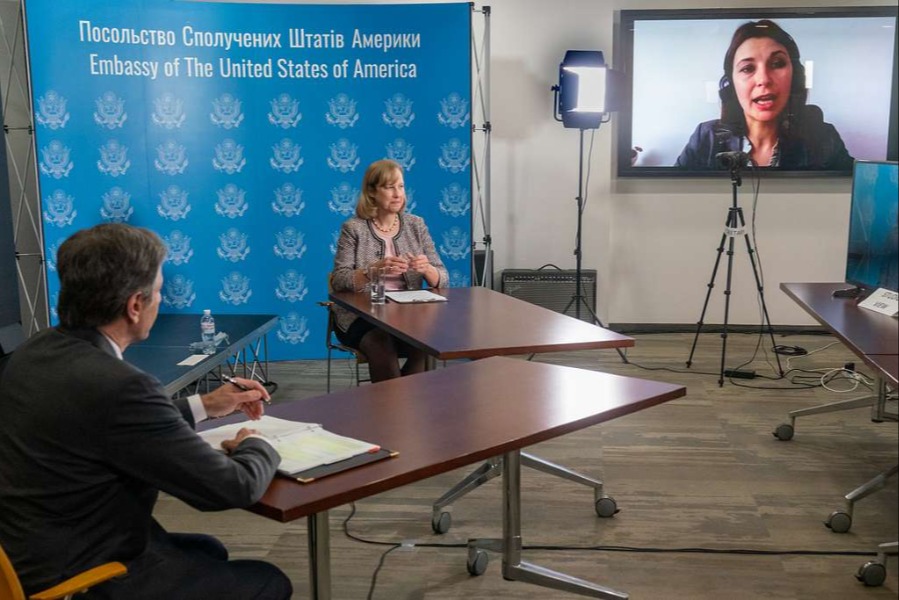Published by The Lawfare Institute
in Cooperation With

This post is the third of three essays on addressing the crisis with North Korea. Read parts one and two.
At present, the People’s Republic of China has a “central deterrence” relationship with the United States. That is, the Chinese nuclear arsenal, which includes nuclear warheads that can be launched by missiles from submarines, threatens the United States with retaliatory attacks on the American homeland as a way of preventing a U.S. strike on the Chinese homeland. “Extended deterrence,” by contrast, describes the protection the U.S. gives to allies like South Korea and Japan: we undertake to retaliate on their behalf against any state that attacks them and this includes a nuclear threat against nuclear-armed states like China, Russia and North Korea. Of course, this means that the U.S. is willing to risk nuclear attacks on the American homeland, in retaliation for executing such a guarantee.
In two previous essays for Lawfare, I argued that a similar Chinese guarantee of extended deterrence to North Korea, analogous to those the U.S. gives to Japan and South Korea, is the best path—perhaps the only realistic path—to a denuclearized Korean peninsula and I explained why I thought this guarantee would be welcomed by North Korea. But even if I am right on those points, why in the world would China, which has a fraught relationship with the North Korean regime, want to extend its nuclear deterrent to protect that regime, and thus to assume additional risks of retaliation against the Chinese homeland should it ever have to make good on that guarantee?
To answer this question, we must step back a bit from the immediate political crisis we are facing, and review the historic circumstances that brought us to this point. In July 1950, American troops and other allied troops under UN command entered the conflict begun on June 25, 1950 when North Korea crossed the 38th parallel and invaded South Korea. In Feb. 1951 peace negotiations began at Panmunjon between the Chinese People’s Volunteer Army (who had intervened in the war in Oct. 1950), and the Korean People’s Army of North Korea on one side, and the United Nations Command, headed by the U.S., on the other. These negotiations lasted more than two years during which, despite some UN successes, there was a military stalemate; the final agreement, signed on July 27, 1953 merely provided for an armistice and created a two-mile wide demilitarized zone roughly along the 38th parallel. That cease-fire agreement still holds. Legally, the Korean War is in abatement but it has not terminated because no final peace settlement has been agreed to. Indeed, both North and South Korea claim to be the sole legitimate government of the peninsula.
This situation is similar, in some salient aspects, to that faced by the Soviet Union in the mid-1970s. Then, too, the national boundaries of its allies were unfinalized because these frontiers had been forged in the aftermath of World War II and there was no peace agreement between the USSR and the other states that fought the war. In that sense, the Helsinki Accords of 1975 though not a binding treaty finally ended World War II and recognized the inviolability of the post-war borders. Although we think of Helsinki as important in the context of human rights, the promises offered by the USSR to uphold basic rights were purchased at the price of the states of NATO conceding the national borders of the Warsaw Pact states.
I propose a similar conference, convened by the UN, to include North Korea, South Korea, Japan, China, the U.S. and Russia with the goal of finally ending the Korean War and recognizing the borders of both Koreas as inviolate. Roughly speaking, the U.S. and China would be in the positions of the U.S. and the USSR at Helsinki—a role that the China has long coveted. The success of the conference will depend upon the Chinese guarantee of extended deterrence to North Korea; nothing else will compel Pyongyang to come to an agreement that denuclearizes the peninsula. (The U.S. has already given such a guarantee to South Korea.)
The alternatives for China are bleak: the continuation of the current diplomatic strategy of putting pressure on China to, in turn, put pressure on North Korea, a strategy that makes both China and the U.S look weak in the region and which makes China responsible for the failure of diplomacy—and the eventual peninsular war with incalculable risks for China.
Would North Korea accept a guarantee of extended deterrence in light of the regime’s fear of Chinese perfidy? Would such a guarantee really reassure the Kim regime? In the essay immediately preceding this one, I argued that it would but in fact we don’t need to go that far. It is enough to say that the U.S. will not test the Chinese threat to find out, and Pyongyang knows that. If as Dennis Healey once wittily said about U.S. extended deterrence in Europe, “it takes far more to reassure an ally than it does to deter and adversary,” it must also be true that it takes far less certainty to deter an adversary than to reassure an ally.






